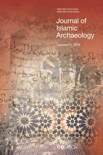
Journal of Islamic Archaeology
Scope & Guideline
Fostering Dialogue on Islamic Archaeological Discoveries
Introduction
Aims and Scopes
- Archaeological Investigations:
The journal publishes findings from archaeological excavations and surveys that provide insights into the material culture of Islamic societies, including urban and rural settlements. - Cultural and Economic Studies:
Research that examines cultural habits, economic preferences, and social dynamics within Islamic periods, contributing to a deeper understanding of daily life in historical contexts. - Interdisciplinary Approaches:
The journal encourages the use of diverse methodologies, incorporating history, anthropology, art history, and environmental studies to analyze archaeological findings. - Historical Transformations:
Focus on the transitions and transformations within Islamic societies, particularly regarding religion, power dynamics, and cultural exchanges across regions. - Material Culture Analysis:
Detailed studies of artifacts, architecture, and inscriptions that reveal the complexities of identity, trade, and social structures in Islamic history.
Trending and Emerging
- Islamization Processes:
Recent publications increasingly focus on the archaeology of Islamization, exploring how Islamic identity was formed and transformed across various regions, such as North Africa and the Mediterranean. - Environmental Archaeology:
There is a growing trend towards environmental archaeology, with studies examining the interplay between human activity and environmental changes, highlighting sustainability issues in historical Islamic contexts. - Material Culture and Identity:
Research on the relationships between material culture and identity has gained traction, emphasizing how artifacts reflect social, religious, and cultural identities in diverse Islamic societies. - Interconnections and Trade Networks:
Emerging studies are increasingly investigating the complex trade networks and cultural exchanges that occurred between Islamic societies and neighboring civilizations, revealing a more interconnected historical narrative. - Public Archaeology and Heritage Management:
An increasing number of papers are addressing the role of archaeology in public discourse and heritage management, focusing on the implications of archaeological findings for contemporary Islamic societies.
Declining or Waning
- Traditional Islamic Architecture Studies:
There has been a noticeable decrease in papers focusing solely on traditional Islamic architectural studies, as the journal shifts towards broader interdisciplinary analyses that incorporate architecture within wider cultural contexts. - Static Historical Narratives:
Research that relies on static or unchanging narratives of Islamic history is less prevalent, with a growing preference for dynamic interpretations that consider change over time. - Narrow Regional Studies:
There appears to be a declining emphasis on highly localized studies that do not connect to broader regional or transnational themes, as scholars increasingly seek to understand the interconnectedness of Islamic societies globally.
Similar Journals

Conimbriga-Revista de Arqueologia
Advancing Archaeological Knowledge for a Richer TomorrowConimbriga-Revista de Arqueologia is a distinguished open-access journal dedicated to the field of archaeology, published by COIMBRA UNIVERSITY PRESS. Since its inception, the journal has fostered a vibrant intellectual community focused on the exploration and dissemination of archaeological research, particularly emphasizing studies relevant to the rich historical and cultural heritage of Portugal and beyond. With its open access model established in 2014, it has become a vital resource for researchers, professionals, and students to share their findings without access barriers, encouraging collaboration and knowledge exchange. Despite the absence of specific metrics such as the HIndex and Scopus rankings, the journal is recognized for its commitment to high-quality scholarship and its role in advancing archaeological discourse. Positioned within the scholarly landscape, Conimbriga-Revista de Arqueologia serves as a crucial platform for the publication of innovative research, reviews, and critical essays, making it an essential journal for those invested in the archaeological sciences.

Al-Shajarah
Cultivating Knowledge in Cultural Studies and PhilosophyAl-Shajarah is an esteemed academic journal that serves as a vital platform for scholarly discourse in the fields of Cultural Studies, History, Philosophy, and Religious Studies. Published by the International Islamic University Malaysia and the International Institute of Islamic Thought and Civilization, the journal reflects a profound commitment to advancing understanding and dialogue surrounding Islamic thought and its place in modern society. With an ISSN of 1394-6870 and an evolving publication history since its convergence in 2011, Al-Shajarah offers valuable insights that cater to a broad array of readers, from seasoned researchers to emerging academics. The journal's rigorous peer-review process and commitment to cultural and religious scholarship are underscored by its categorization in the Q3 and Q4 quartiles in critical academic fields, and its Scopus rankings demonstrate its relevance within the global academic landscape. While open access is not currently available, Al-Shajarah remains a crucial resource for those seeking to enrich their understanding of Islamic civilizations and philosophy, providing access to pioneering research that shapes the conversation within these disciplines.
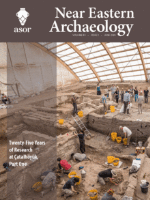
NEAR EASTERN ARCHAEOLOGY
Bridging Past and Present Through Archaeological InquiryNEAR EASTERN ARCHAEOLOGY, published by University of Chicago Press, is a premier journal dedicated to the field of archaeology, particularly focusing on the rich cultural heritage and archaeological findings of the Near East. With an ISSN of 1094-2076 and an E-ISSN of 2325-5404, this esteemed publication provides a vital platform for scholars and practitioners to share their research, insights, and discoveries. The journal holds an impressive ranking in the Q1 quartile for both Archaeology and History in 2023, reflecting its significant impact within these fields and a robust history of scholarly contribution. The journal has been pivotal in shaping discussions around archaeological methodology, theory, and contemporary issues from 2002 to 2024, as it continues to reach a wide audience through various access options. With Scopus rankings placing it in the top percentiles for both History and Archaeology, NEAR EASTERN ARCHAEOLOGY represents an essential resource for researchers, professionals, and students alike, fostering the exploration and understanding of the region's archaeological narrative.

Journal of Al-Tamaddun
Connecting Cultures: A Journey Through TimeWelcome to the Journal of Al-Tamaddun, an esteemed academic publication dedicated to the exploration of Islamic history, culture, and anthropology. Published by UNIV MALAYA, ACAD ISLAMIC STUDIES, this open-access journal has been contributing to scholarly discourse since 2008, allowing comprehensive and unrestricted access to its rich array of research articles. The journal proudly ranks in the upper quartiles of several categories for 2023, including Q1 in History and Religious Studies and Q2 in Anthropology and Cultural Studies, reflecting its significant impact and relevance in these fields. Hailing from Malaysia, the journal serves as a global platform for researchers and scholars, fostering interdisciplinary dialogue and enhancing our understanding of civilization through a critical Islamic perspective. With its Scopus rankings highlighting its standing within arts and humanities, the Journal of Al-Tamaddun aims to propel innovative research and contribute to the development of knowledge across diverse academic landscapes.
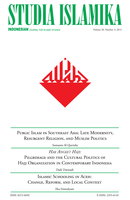
Studia Islamika
Cultivating critical insights into Muslim societies.Studia Islamika is a distinguished academic journal published by the Syarif Hidayatullah State Islamic University Jakarta, specifically through the Center for Study Islamic & Society. Established in 1994, this journal has rapidly evolved to become a pivotal platform for advancing scholarly dialogue in the field of Islamic Studies. With a notable impact factor and categorized in the prestigious Q2 quartile of Religious Studies as of 2023, it emphasizes the critical examination of Islamic thought, culture, and sociopolitical contexts. The journal's issues span from 1994 to present, featuring innovative research that engages with contemporary challenges in Muslim societies. Although it does not currently offer open access, its rigorous peer-review process ensures high-quality research contributions. Researchers, professionals, and students alike will find Studia Islamika to be an invaluable resource for enhancing their understanding of the multifaceted dynamics within Islamic traditions and their implications in today's world.

Britannia
Navigating the Depths of Archaeological and Historical InquiryBrittannia is a prestigious journal published by Cambridge University Press that serves as a cornerstone for scholars and enthusiasts in the fields of Archaeology, Classics, and History. With its ISSN of 0068-113X and E-ISSN of 1753-5352, the journal has been committed to disseminating high-quality research and innovative studies since its inception in 1970, addressing vital topics that span cultural, historical, and archaeological dimensions. As a hallmark of academic rigor, it maintains a Q1 ranking in Classics and History and a Q2 ranking in Archaeology (both Arts and Humanities, 2023), reflecting its impact and significance in these disciplines. Although not an Open Access journal, it provides invaluable content for researchers, professionals, and students alike, ensuring that vital insights into ancient civilizations and cultural heritage resonate well beyond the pages of each issue. With upcoming publications scheduled through 2024, Brittannia continues to be an essential resource for anyone invested in the legacies of the past.

Slovenska Archeologia
Uncovering insights that shape our understanding of the past.Slovenska Archeologia is a prominent journal published by the Slovak Academy of Sciences, Institute of Archaeology, dedicated to advancing the field of archaeology through rigorous scholarly research and insightful scholarship. With an ISSN of 1335-0102 and an E-ISSN of 2585-9145, this journal has been a vital platform for archaeologists and academics since its inception, converging its insightful publications from the years 2017 to 2023. Awarded a Q2 ranking in the field of archaeology across both arts and humanities categories, it holds a respectable position in the Scopus rankings, recognizing its contributions to the discipline. Based in Slovakia, the journal is an essential resource for professionals, researchers, and students interested in archaeological findings and methodologies. While it does not currently offer Open Access options, its commitment to promoting high-quality research makes it a valuable addition to the academic community.
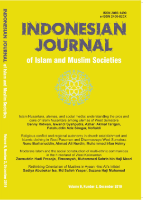
Indonesian Journal of Islam and Muslim Societies
Empowering voices in the fields of Islamic studies and social sciences.Indonesian Journal of Islam and Muslim Societies (IJIMS) is a leading platform for scholarly discourse in the fields of Islamic studies and social sciences, published by INST AGAMA ISLAM NEGERI-IAIN SALATIGA. Since its establishment in 2011, IJIMS has been dedicated to advancing the understanding of Islamic culture, society, and politics, with an impressive impact reflected in its Q1 ranking in Religious Studies and Q2 in Sociology and Political Science as of 2023. The journal not only ranks among the top in the Scopus database, occupying the 19th position in the Arts and Humanities—Religious Studies category, but it also offers open access to its content, making it readily available to a global audience. This commitment to accessibility ensures that researchers, students, and professionals can engage with high-quality research that informs and shapes contemporary dialogue on Islam and Muslim societies. With a convergence of rich academic contributions through to 2024, IJIMS stands as a vital resource for those looking to explore the complexities of Islam in a modern context.
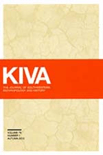
Kiva-Journal of Southwestern Anthropology and History
Pioneering Research in the Heart of the SouthwestKiva - Journal of Southwestern Anthropology and History is a distinguished academic journal published by Routledge Journals, Taylor & Francis Ltd, that serves as a vital resource for scholars in the fields of anthropology, archaeology, and history. With an ISSN of 0023-1940 and an E-ISSN of 2051-6177, this journal has established itself as a significant avenue for scholarly communication since its inception in 1964. It consistently ranks in the top quartiles, including Q1 in Archaeology and Q2 in Anthropology, reflecting its high impact and rigorous peer-review process. Covering a wide array of topics pertinent to the Southwestern United States, Kiva invites original research articles, reviews, and methodological papers that advance understanding of the region's rich cultural heritage and historical narratives. While currently not open access, its commitment to disseminating quality research makes it an essential reading for researchers, professionals, and students aiming to explore the multifaceted dimensions of southwestern studies.

Ancient Asia-Journal of the Society of South Asian Archaeology
Fostering Interdisciplinary Insights into South Asian ArchaeologyAncient Asia - Journal of the Society of South Asian Archaeology, published by ARF India, stands as a pivotal resource for the exploration and dissemination of archaeological research focused on the rich history and culture of South Asia. Since its inception as an Open Access journal in 2006, it has become an essential platform for scholars and enthusiasts alike, boasting an impressive range of quartile rankings across multiple disciplines, including Anthropology, Archaeology, History, and Visual Arts. With expansion into various indexed categories and consistent dissemination of impactful research common to this highly diverse field, Ancient Asia aims to foster interdisciplinary dialogue, facilitate collaboration among researchers, and enhance the global understanding of ancient civilizations within the region. By embracing an inclusive access model, the journal encourages wide readership and engagement, positioning itself as a key player for students, professionals, and academics interested in delving into the archaeological marvels of South Asia.